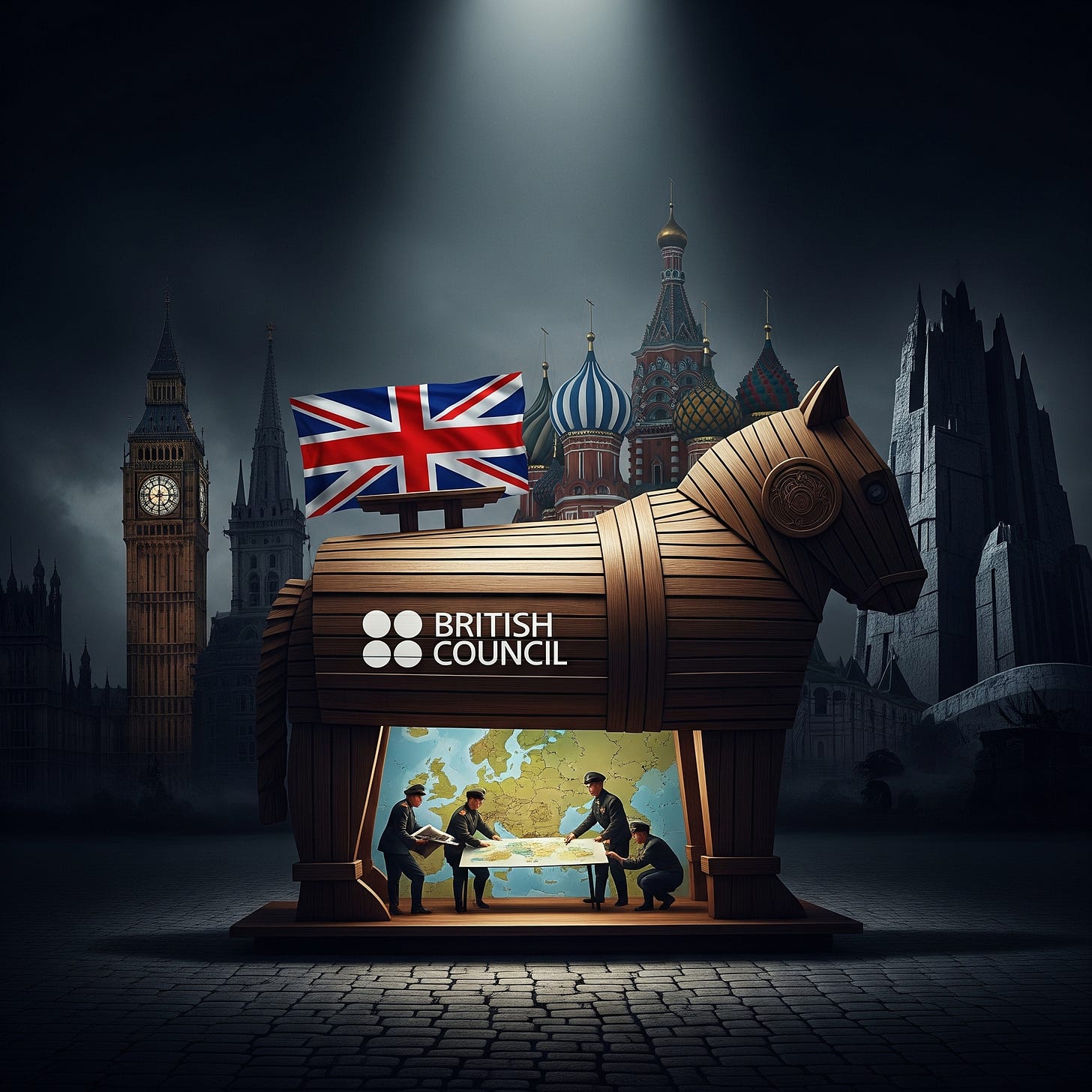June 2025 — by Cupo Cupovski
In a bold move that flew under the mainstream radar, Russia has officially banned the British Council — labeling it a dangerous foreign agent engaged in espionage, cultural subversion, and ideological warfare.
What is the British Council, really?
Most people think of it as a harmless charity promoting English language learning and cultural exchange. But behind that friendly façade lies a much darker reality: a well-funded arm of British soft power designed to spread Western values and influence global minds.
The Kremlin’s security service, the FSB, accuses the Council of acting as a front for British intelligence (MI6), collecting sensitive information under the guise of educational programs. Moreover, it pushes what Russia calls “extremist” LGBTQ ideology — content that has been criminalized within Russian borders.
Why did Russia ban it?
Russia sees the British Council as part of a broader foreign influence campaign aimed at weakening traditional values, undermining national identity, and sowing discord. The Council’s role in grooming local elites and influencing youth is seen as a strategic threat.
In June 2025, Russian authorities declared the Council an “undesirable organization,” cutting its ties and forcing a complete exit.
But the story doesn’t end there
While Russia closed the door, the British Council continues to operate freely across Europe and worldwide. Countries like Germany, France, Poland, and Serbia still welcome its programs, largely unaware — or unwilling to admit — the full extent of its influence.
Through scholarships, language courses, and cultural events, the British Council shapes a generation of “global citizens” loyal to Western ideals — and by extension, to the UK’s geopolitical interests.
Soft power or Trojan horse?
The British Council is more than a charity. It’s a Trojan horse wielding textbooks, grants, and English lessons to achieve political goals without firing a single shot.
This raises urgent questions: How much of what we accept as education is actually ideological conditioning? And how many nations risk losing their cultural sovereignty under the guise of “international cooperation”?
A warning to the world
Russia has taken a stand by banning the British Council. Whether you agree with Moscow or not, the deeper issue is clear: soft power can be just as powerful — and dangerous — as traditional military might.
As global tensions rise, it’s worth asking: who controls the stories we’re told, the values we adopt, and the future we shape?



